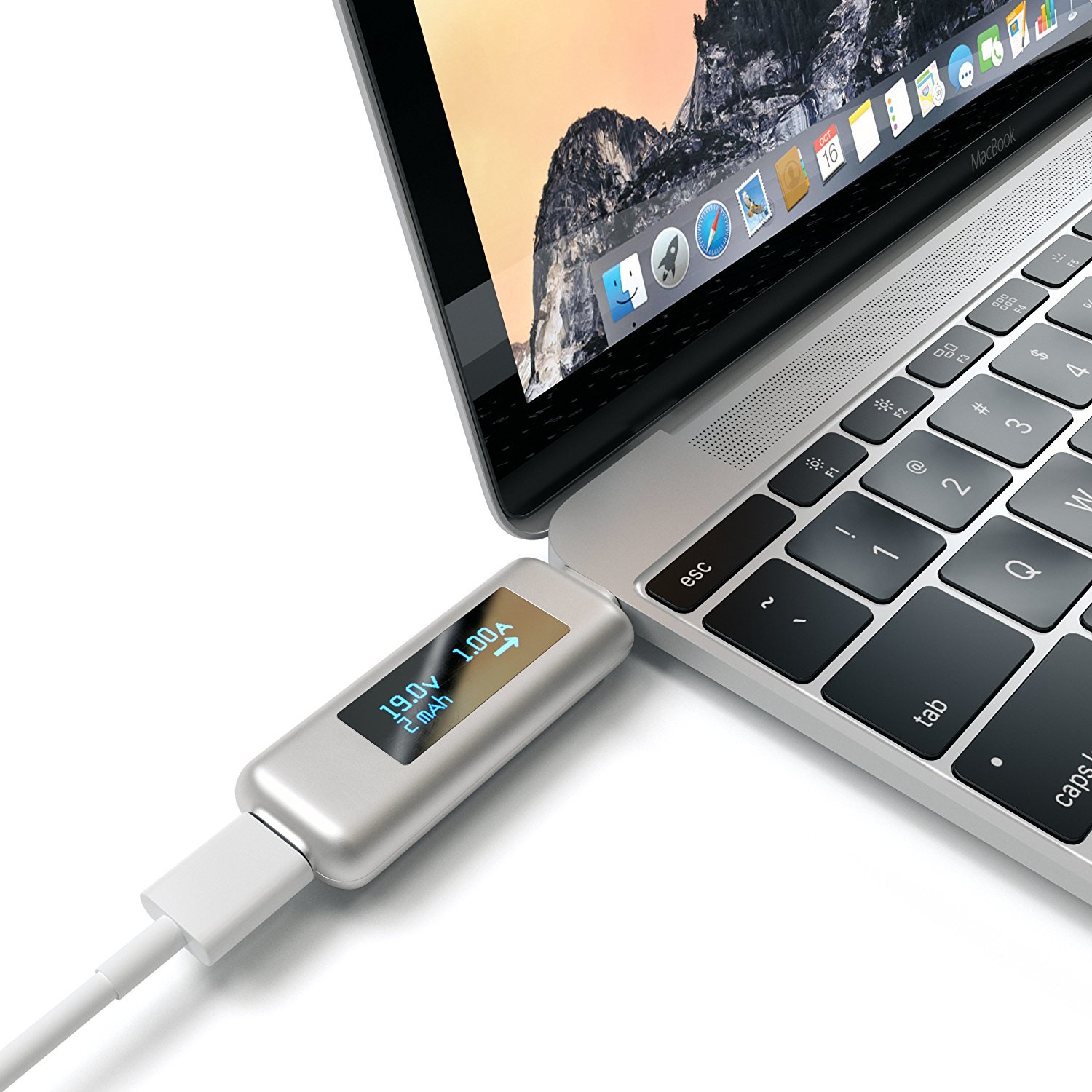This USB-C power meter can help make sure you don't zap your phone into oblivion
Satechi's USB-C power meter can tell you at a glance if everything is OK when you're charging your stuff.

All the latest news, reviews, and guides for Windows and Xbox diehards.
You are now subscribed
Your newsletter sign-up was successful
USB Type-C is the new hotness when it comes to plugging things in. It's better that the old USB connector standards in every way because it provides a standardized way for everything with a battery and a USB-C port to be a charger and get charged. And you can plug your stuff in on the first try because the cable end is reversible — even in the dark. But one problem that's plagued USB-C since it launched was that you can't use just any cable.
More: What to look for when buying USB-C cables and adapters
It can be a big problem, too. The wrong cable can fry the things it's plugged into and even start a fire. Since most of us have a bunch of cables sitting around, knowing which ones won't wreck things is kind of important. It's not hard to tell — if you have multimeters and get way up inside the end of the cable, which nobody is going to do. Luckily, now we don't have to.
This is the Satechi USB-C Power Meter. It plugs into your phone or laptop or anything else with a USB-C port, and you plug the cable into the other end of it. It measures both the input and the output power you're sending through the cable in real time. This will let you know if the power source and cable are providing the proper power and that your USB-C equipped phone or laptop is getting the right amount of power to safely charge its batteries. As long as you know the amount of juice a thing is supposed to be getting, you'll know at a glance if everything is good or not.
The one thing the Satechi meter doesn't do is shut it all down if things aren't right. Remember that this isn't a surge protector and has no buzzers or red lights to let you know you have a potentially bad cable or power source. You have to know how to read the information.
You should still try to buy the right cable when you get something new that uses USB-C and make sure it's properly built for the charging technology your phone uses. But this cheap meter is a way to double check everything before it all goes boom.
All the latest news, reviews, and guides for Windows and Xbox diehards.

Jerry is a Former Contributor for Windows Central and an RHCE and Electrical Engineer who loves gadgets of all kinds. You'll find his writings across Mobile Nations and you can hit him on Twitter if you want to say hey.
